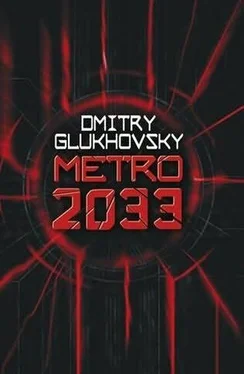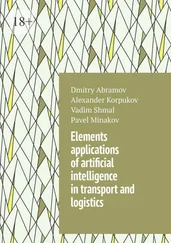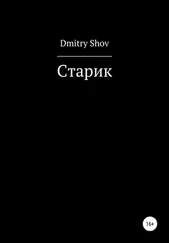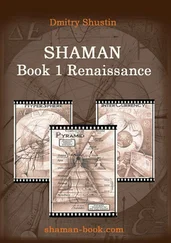Being close to Hansa had a profound influence on Byelorusskaya. It was immediately apparent that it was rather well protected. A blockhouse had been constructed ten metres before the entrance: a light machine gun stood on sacks filled with dirt, and the guard detail consisted of five men. Checking their documents (and here the new passport came in handy), they asked them politely whether they were from the Reich. No, no, they assured Artyom, no one here has anything against the Reich, it was a trading station, observed full neutrality, and did not interfere in the conflicts between the powers, as the chief of the guard called Hansa, the Reich and the Red Line.
Before continuing their trip along the Ring, Artyom and Ulman decided they could take a break and have a bite. Sitting in an affluent, even chic, snack bar, Artyom obtained information about Byelorusskaya as well as eating an excellent and inexpensive cutlet.
A round-faced, fair-haired man sitting at the table opposite, who introduced himself as Leonid Petrovich, was tucking away an epic portion of bacon and eggs, and when his mouth was empty, he told them with pleasure about his station. Byelorusskaya survived because of the transit of pork and chicken. Huge and very successful enterprises were located beyond the Ring – closer to Sokol and even to Voykovskaya, though the latter was dangerously close to the surface. Kilometres of tunnels and engineering lines had been converted to a huge livestock farm that fed all of Hansa, and delivered goods both to the Fourth Reich and to the eternally half-starved Red Line. Moreover, the residents of Dynamo had inherited from their enterprising predecessors an aptitude for the tailor’s trade. They sewed the pigskin jackets that Artyom had seen at Prospect Mir. No external danger from this end of the Zamoskvoretskaya line existed, and in all the years of living in the metro, no one even once had put either Sokol, Airport, or Dynam out of business. Hansa laid no claims to them, being satisfied by the ability to collect a duty from the transportation of the goods, and at the same time they rendered them protection from the fascists and the Reds. Nearly all of the residents of Byelorusskaya were involved in business. Farmers from Sokol and tailors from Dynamo had the sense to make a profit from the wholesale deliveries. Bringing a batch of hogs or live chickens on handcars and trams pulled by men, the people from that side, as they called them here, unloaded their belongings – for these purposes special cranes even had been installed on the platforms – settled up their accounts and left for home. Life bustled at the station. The resolute traders (at Byelorusskaya they were called ‘managers’ for some reason) drifted from the ‘terminal’ – the unloading locations – to warehouses, jingling bags with cartridges and dispensing instructions to sinewy loaders. Small carts on well lubricated wheels, laden with boxes and bundles, rolled noiselessly towards rows of counters, or to the Ring boundary line, from where Hansa buyers took the merchandise, or to the opposite edge of the platform, where Reich emissaries awaited the unloading of their orders. There were quite a few fascists here, but not the ordinary ones, mainly officers. However, they behaved themselves. They were a little arrogant, but within the bounds of decency. They looked with hostility at the swarthy dark-haired men, of whom there were enough among the local tradesmen and loaders, but they didn’t try to impose their beliefs and laws.
‘And we have banks here, too, you know… Many of them, from the Reich, come to us supposedly for goods, but really they come to invest their savings,’ his companion shared with Artyom.
‘I doubt that they will touch us. We are like Switzerland for them,’ he added incomprehensibly.
‘You have it good here,’ Artyom noted politely.
‘It’s not just us, it’s all about Byelorusskaya… So where are you from?’ Leonid Petrovich finally asked out of respect. Ulman pretended that all his attention was on his cutlet and he had not heard the question.
‘I’m from VDNKh,’ Artyom replied, glancing at him.
‘What do you say! How terrible!’ Leonid Petrovich even put down his knife and fork. ‘They say things are really bad there? I heard they are hanging on by a thread. Half the people have died… Is it true?’
A lump stuck in Artyom’s throat. For better or for worse, he had to reach VDNKh, see his own kind, perhaps, for the last time. How had he been able to waste valuable time eating? Moving the plate away, he asked for the bill and, despite Ulman’s protests, pulled him along with him, past the counters with meat and clothing in the openings of the arches, past the piles of merchandise, past the bartering peddlers, bustling loaders, the sedately strolling fascist officers, towards the crossing to the Ring line. Over the entrance hung a white cloth with a brown circle in the middle. Two machine gunners in the familiar grey camouflage checked their documents and inspected their things. Artyom had not succeeded in getting through to the Hansa territory with such ease before. Ulman, still chewing a piece of cutlet, dug into his pocket and presented an unknown type of ID to the border guards. They silently moved away a section of the barrier, allowing them in.
‘What kind of a pass is that?’ Artyom was curious.
‘So… The award booklet for the medal, “For Service to the Fatherland’,” Ulman laughed it off. ‘Everyone is indebted to our colonel.’
The crossing to the Ring was a strange mixture of fortress and warehouses. The second Hansa border began beyond the footbridges over the tracks: real redoubts had been erected there with machine guns and even a flame-thrower. And further away, next to a memorial – a bronze, bearded guy with a machine gun, a frail girl and a pensive lad with weapons (most likely, the founders of Byelorusskaya or heroes of a battle with mutants, Artyom thought) – a whole garrison of not less than twenty soldiers was deployed.
‘This is because of the Reich,’ Ulman explained to Artyom. ‘It’s like this with the fascists: trust but verify. They didn’t touch Switzerland, of course, but they subjugated France.’
‘I have gaps in my knowledge of history,’ Artyom acknowledged with embarrassment. ‘My stepfather couldn’t find a tenth grade textbook. Though I have read a little about ancient Greece.’
An endless chain of loaders with bundles on their shoulders trailed past the soldiers like ants. The movement was well organized: the bearers descended on one escalator, and they came up, unladen, on the other. A third was intended for the remaining passers-by. Below sat a machine gunner in a glass booth, watching the escalator. He checked Artyom and Ulman’s documents again and issued them papers with the stamp, ‘Temporary Registration – in Transit’ and the date.
This station also was named Byelorusskaya, but the difference from its radial twin was striking: they were like twins separated at birth, one of whom ended up in a royal family and the other who was adopted and grew up poor. All the prosperity of that first Byelorusskaya faded in comparison with the Ring station. It gleamed with shining white walls, fascinated with intricate stucco work on the ceiling and dazzled with neon lamps, of which only three were burning in all the station, but even their light was more than enough. The loaders on the platform were divided into two parts. One group walked to the tracks through arches on the left, the other to the right, casting off their bundles into piles and returning at a run for new ones. Two stops had been made at the tracks: for merchandise, where a small crane had been installed, and for passengers, where a ticket office stood. Once every fifteen or twenty minutes a cargo handcar went past the station. They were outfitted with a peculiar body – board planking on which they had loaded boxes and bundles. Besides the three or four men who stood at the handles of the handcar, there also was a guard on each.
Читать дальше











